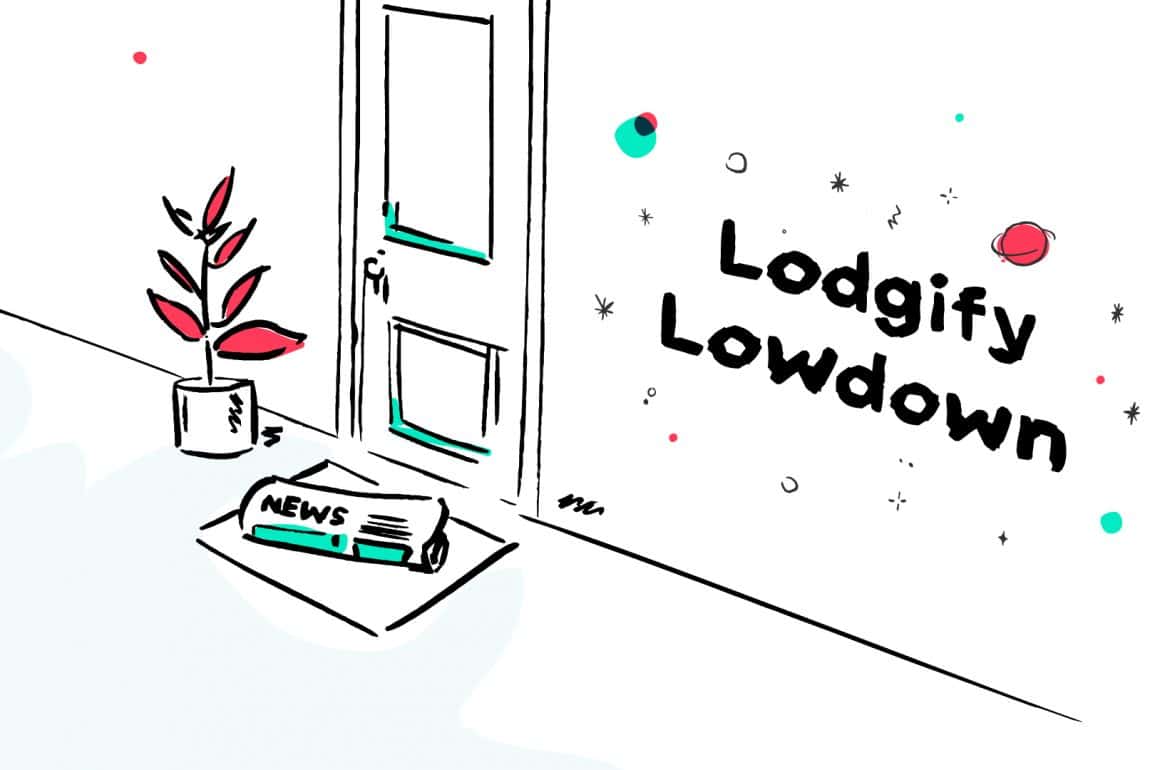And just like that, we’re officially a month into 2024!
This month has flown by. But while we’ve all been heads-down, trying to start the year off strong, the industry has been anything but quiet.
It’s been a particularly busy month for legislation, with new proposals out of the U.S. and the U.K. as well as efforts on Airbnb’s part to address U.S. housing shortages. We’ll also take a look at new fees from Airbnb and new vacation rental listing sites on the scene.
Ready? Let’s dive in.
International bookings are getting (even) more expensive
On top of spendy cross-country flights, international visitors will now be faced with another expense when they book Airbnbs.
Starting April 1, Airbnb will be increasing its guest fees for cross-currency bookings (when guests pay in a different currency than the one that’s listed) by about 2%.
Currently, guest fees in Airbnb’s split fee structure tend to be under 14.2%. With this change, that number will increase to up to 16.5%, with the final guest service fee becoming clear at checkout.
Why? Chances are, Airbnb wants to reduce the risk associated with accepting cross-currency payments. But some speculations imply that the company is looking to expand into more international markets.
What this means for hosts
First, know that this change only applies to Airbnb’s split fee structure. Hosts who use the host-only fee structure won’t be affected.
And for those that do use the split fee structure, the change will only affect cross-currency bookings. So, those impacted the most will be hosts in tourist hotspots that attract long-distance travelers.
If you fall into this category and worry that the higher fees may impact your bookings, you might consider:
- Trying to attract more domestic travelers
- Updating your pricing strategy
- Diversifying your listing platforms
- Creating your own bookable website to reduce dependency on external listing platforms and save on third-party fees

The new kids on the block
Speaking of listing platforms, January also brought updates from several new vacation rental listing sites. Let’s take a look:
- Overmoon has raised $80 million to fund its operations. Rather than working with hosts, Overmoon owns all of the properties on its platform to better control quality and consistency. Its tagline is “Never book a bad vacation home again.”
- Swimply has started offering home rentals. Swimply launched as an online marketplace enabling homeowners to rent out amenities such as pools and sports courts by the hour. Now, the company is testing out hourly home rentals for events starting in their home market of Los Angeles.
- Hilton has launched LivSmart Studios, its new hotel brand aimed at guests staying 20 nights or more. The units will be hotel-apartment hybrids and offer full kitchens to meet the home-like lodging needs of their target guests, who are primarily people relocating for jobs.
We know—property owners can’t list their sites on either Overmoon or LivSmart Studios. Still, it’s important to stay on top of new competitors and industry trends.
And as for Swimply, if you have a rental in Los Angeles, you might consider testing out hourly rentals!
Housing shortages? Airbnb to the rescue!
Vacation rentals are often blamed for contributing to affordable housing shortages across the U.S. But now, Airbnb is stepping up to alleviate this issue with its new Airbnb Housing Council.
The Airbnb Housing Council will bring together leading housing experts and elected officials to find practical solutions to this chronic issue. Airbnb expects the council to offer:
- Recommendations for how the company can support communities in increasing long-term housing availability
- Ways of working with local governments on policies that balance the benefits of home sharing with communities’ needs
- Additional information on housing supply and affordability policy frameworks and research
Airbnb’s goal? To ensure that hosting and its subsequent economic activity make communities stronger.
Local U.S. governments take on big questions
January saw new legislation brought forward at the state and local levels in the U.S., all of which pose important questions.
Who should regulate vacation rentals: the state or local governments?
The most controversial example comes from the Florida Senate, which is currently considering a vacation rental preemption bill. If passed, SB 280 would turn local governments’ authority in regulating vacation rentals over to the state.
While the bill’s proponents claim that this change would simplify short-term rental regulation and registration, some local governments are complaining that it would leave cities and counties with too little power to resolve problems.
The Florida Senate is expected to vote on the bill this week, after which it will move on to the Florida House if passed.
Are vacation rentals technically hotels?
This was the question at the heart of the legal dispute in Tennessee’s Claiborne County Chancery Court last week.
The issue: Lone Mountain Shores, a housing community in Claiborne County, prohibits rental accommodations and services provided by hotels, motels, B&Bs, apartments, condominiums, and boarding houses. As a result, the homeowner association’s board has sued homeowners operating short-term rentals within the development, arguing that they fall under the same domain.
But are vacation rentals and hotels the same? The defendants argue that they’re not—and that the rules are ambiguous.
Both sides have asked the judge to make a ruling without going to trial, so we’ll likely have an answer to the question by February 25.
How many short-term rentals is too much?

The city council in Georgetown, South Carolina held a workshop last week to discuss a new cap on short-term rentals. But while officials agree on implementing a limit, they have one holdup.
They can’t decide how many vacation rentals there should be.
The current proposed cap of 250 rentals represents 7% of the available housing within city limits. But housing availability isn’t the only concern here: Officials are also worried about Geortown’s small, historic community becoming too touristy.
This is a concern that’s top of mind in many communities around the world right now, and we’re eager to see how Georgetown handles it.
The U.K. cracks down on reporting and registration
Meanwhile, we’ve also seen new short-term rental regulations out of the U.K.
New reporting rules aim to prevent tax evasion
As of January 1, digital platforms—including Airbnb—will be required to collect and share U.K. sellers’ transaction details with the tax authorities. This change is part of the U.K. Government’s efforts to prevent tax evasion, particularly among those who use these platforms as a side hustle.
Who’s affected? Starting in January of 2025, Airbnb will have to share transaction details for hosts who make at least 30 transactions or earn more than £1,735 in a year. Details shared will include tax identification numbers, bank account details, and the volume and value of transactions made.
So, if you fall into the above bracket, know that Airbnb will be sharing your transaction details. (And make sure you’re properly reporting these details yourself to avoid tax evasion!)
Wales’ new statutory registration scheme puts safety first
The Welsh Government made an announcement of its own in January: specifically, that it plans to introduce a new statutory registration scheme for all Welsh visitor accommodations.

The primary goal here is safety. The new scheme will provide a register of all the visitor accommodations in the country as well as where and how they’re operating. Essentially, the government hopes to improve the visitor experience by requiring accommodation providers to prove they’re meeting safety and quality requirements.
What do Welsh hosts need to do? For now, nothing. The new legislation isn’t expected to come into effect until the end of the year. So, keep your eyes opened for more specifics and, in the meantime, it never hurts to review your rental’s safety standards!
We got nominated!
Lastly, we couldn’t help but share the good news: Lodgify has been nominated for Best Software Solution at the Book Direct Show Awards! This award recognizes leading tech companies providing software that enables short-term rental managers to generate more direct bookings, and we couldn’t be more proud to be nominated.
Winners will be announced at the Book Direct Show in May. Be sure to get your tickets if you haven’t already!
See you next time!
With new fees, listing platforms, and regulations in store, vacation rental hosts and managers have a lot to plan for. Now is a great time to consider how these changes will affect you and, if necessary, make changes to set your business up for success.
As always, we’ll be back with more information as soon as we have it!



